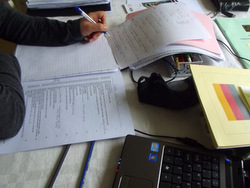
A pilot study undertaken in Wales suggests that acupuncture may be a promising treatment for chronic anxiety which has been resistant to other interventions through their GP, such as CBT and medication. Forty patients were randomly allocated to one of two groups: one group received ten sessions of acupuncture for 10-12 weeks, whilst the other were held on a waiting list to act as a control. The waiting list group was then similarly given ten sessions of acupuncture. Both groups were followed up for ten weeks after treatment.
State anxiety (anxiety in response to specific situations) scores in the acupuncture group decreased from a mean 57.7 to 38.8, whilst in the waiting list group, the change was 61.5 to 60.6, a highly statistically significant difference. Trait anxiety (personality predisposition) scores showed similar changes. The control group exhibited similar improvements when they received acupuncture, and these improvements were maintained after ten weeks follow-up.
Qualitative comments by the authors of the paper, may be just as valuable in themselves: “Several participants obtained jobs, despite having been unemployed for several years, and some family members voluntarily came to the department specifically to report changes that had occurred. A further outcome not formally assessed, but generally reported by participants, was that those who suffered with insomnia or generalised disturbed sleep found they were sleeping better.”
(Randomised controlled trial on the use of acupuncture in adults with chronic, non-responding anxiety symptoms. Acupuncture in Medicine, online 16 January 2015.)




